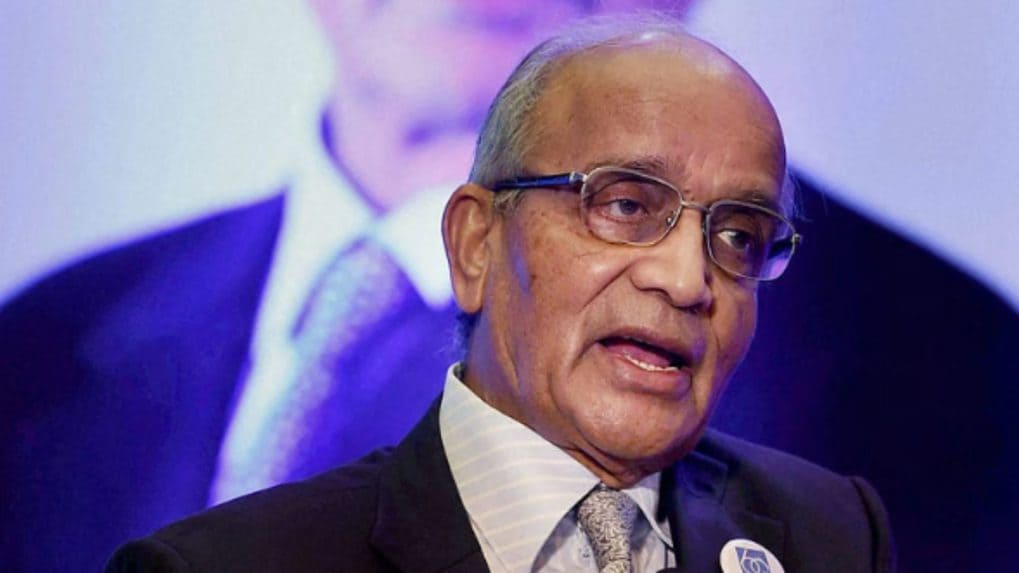Maruti Chairman flags twin threats: Trump’s tariffs abroad, policy paralysis at home
Bhargava contrasted India's situation with that of China — a communist country that successfully used car ownership to drive urban mobility and economic growth.
ADVERTISEMENT
Amid a rapidly evolving global trade and geopolitical environment, C.M. Bhargava, Chairman of Maruti Suzuki India Limited (MSIL) highlighted a range of external challenges facing the Indian automobile industry — from renewed protectionist policies in the United States under President Donald Trump to supply chain disruptions caused by China’s export controls.
Addressing shareholders, Bhargava remarked that the world is facing a level of economic and diplomatic unpredictability "perhaps never experienced before."
"The world is experiencing a level of uncertainty perhaps never experienced before. President Trump has in many ways forced nations to rethink conventional policies and relationships. In particular, the use of tariffs in diplomacy is being seen for the first time. India, during the process of negotiating a bilateral treaty with the United States, has been subject to high tariffs. I have full confidence in the ability of our government to protect national interests and do what would be best for the country."
He cited India’s ongoing negotiations with the U.S. for a bilateral trade agreement as a case in point. Bhargava noted that India has been subjected to high tariffs on key exports, which he said could impact the competitiveness of Indian industry in global markets.
"I have full confidence in the ability of our government to protect national interests and do what would be best for the country," he added, expressing cautious optimism.
Adding to the external pressures, Bhargava drew attention to a recent decision by the Chinese government requiring licenses for the export of rare earth magnets — critical components in electric motors used in hybrid and electric vehicles.
"This decision has added another element of uncertainty for the automobile industry," Bhargava said. "We are hopeful that the licenses will be issued shortly."
He reassured shareholders that Maruti Suzuki had so far managed to avoid production losses due to this supply bottleneck, but cautioned that the situation remained dynamic and would need close monitoring.
Beyond external challenges, Bhargava used the opportunity to call for a re-evaluation of domestic policy in relation to the automotive sector. While India continues to register strong GDP growth, the car industry has been witnessing a concerning slowdown. Retail sales growth stood at just 3% in FY 2024–25, and the first quarter of the current year saw a decline of 1.3%.
"This slowdown in the car industry has happened despite the country experiencing the highest GDP growth amongst large countries and calls for serious consideration," Bhargava said.
He attributed the sluggish growth to a series of cost escalations driven by stricter emission and safety norms aligned with European standards. These have particularly affected the affordability of small cars, the backbone of personal mobility for India’s lower and middle-income segments.
"It was perhaps not realised that these higher costs, combined with unchanged tax rates, would render small cars unaffordable for large sections of the population," he said, pointing out that many Indian households still rely on two-wheelers.
Bhargava contrasted India's situation with that of China — a communist country that successfully used car ownership to drive urban mobility and economic growth. Between 2000 and 2017, China expanded annual car production from 2 million to 25 million units, thanks to targeted subsidies, infrastructure incentives, and supportive industrial policy.
"Should India also not adopt policies that facilitate the growth of the car industry?" he asked, suggesting that vehicles should be seen as enablers of economic participation rather than luxury items.
Despite the headwinds, Maruti Suzuki crossed the milestone of 2 million units in production during FY 2024–25. The company also posted robust export figures — over 330,000 units — with a 37% year-on-year growth in the first quarter of FY 2025–26, making it India’s largest car exporter.
To support future growth, the company plans to launch two new SUVs this year, including one electric model for both domestic and overseas markets. Bhargava also provided updates on the Kharkhauda facility, where the first production line is operational and the second line is set for completion early next fiscal year.
Bhargava reaffirmed the company’s commitment to its net-zero goals, outlining initiatives such as increased use of solar energy, biogas, and expanded CNG vehicle offerings. Maruti Suzuki aims to sell 700,000 CNG cars in FY 2025–26, building on the 619,890 units sold last year.
The company also reported progress on logistics efficiency and carbon footprint reduction, with 24.3% of its cars transported by rail in FY 2024–25 — a figure targeted to rise to 26% this year.
Bhargava underscored the strategic importance of Maruti’s partnership with Suzuki Motor Corporation (SMC), noting that the two boards now meet twice a year to align on key issues. Processes are being streamlined to eliminate duplication and enhance efficiencies.
“The future success of SMC and MSIL are closely interlinked,” Bhargava said, “and we are committed to ensuring that both companies grow together.”
While acknowledging the uncertain global landscape, Bhargava expressed confidence in Maruti Suzuki’s long-term strategy, backed by strong engineering capabilities, employee dedication, and alignment with national development goals.
“Your company has always faced challenges and successfully overcome them. I look forward to the continued support of all our shareholders as we move forward during what may be a difficult year,” he concluded.
Read More: DNPA tells Delhi High Court: ChatGPT threatens survival of Digital news media


